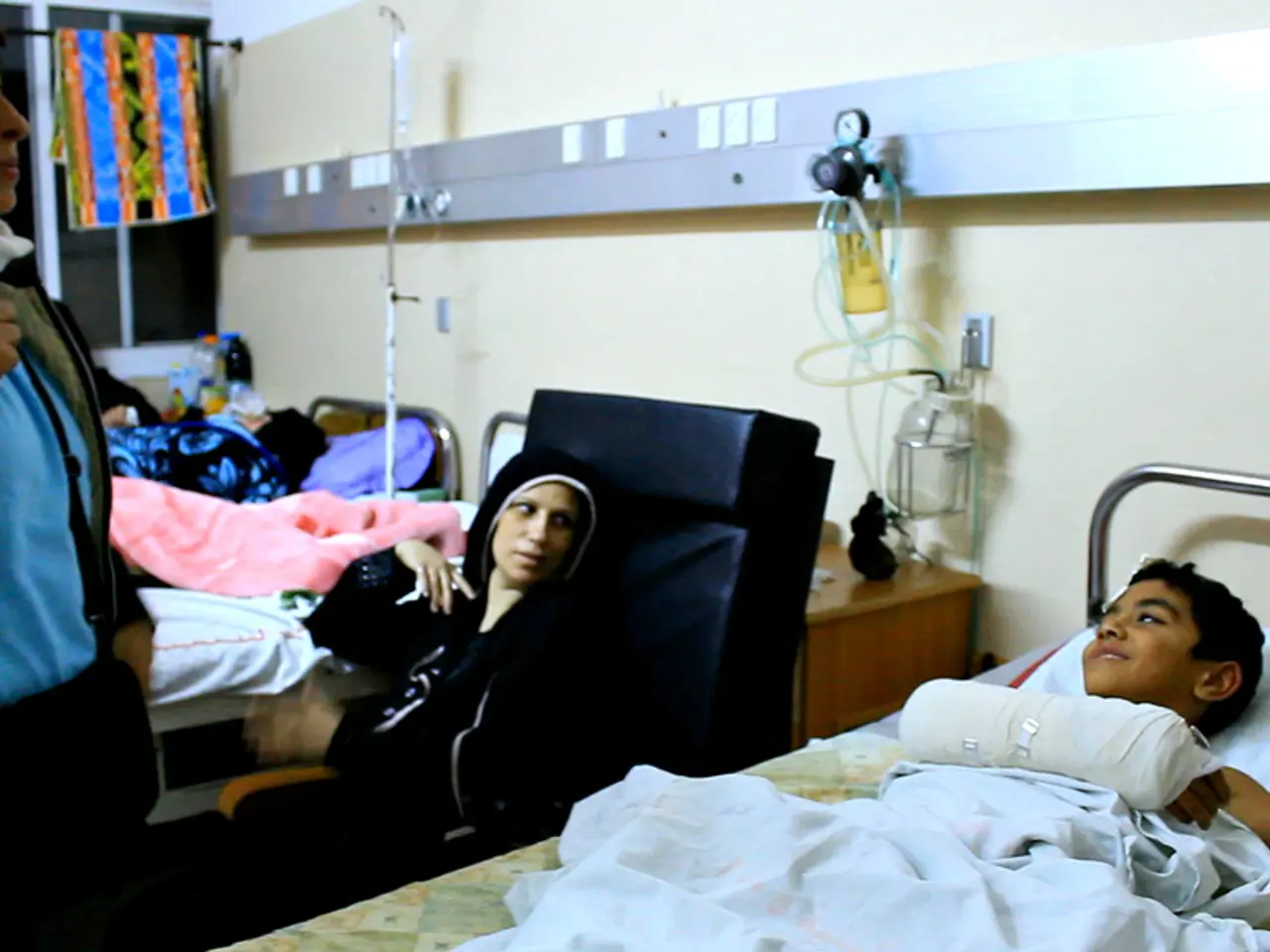Hospitalized individuals in Britain are compelled to receive medical attention within ambulances due to an overburdened healthcare system.
In recent developments, the European branch of the World Health Organization (WHO/Europe) and the European Centre for Disease Prevention and Control (ECDC) have provided updates on the COVID-19 situation.
While SARS-CoV-2 circulation has shown increases in certain countries, hospitalizations are primarily among older adults or vulnerable groups. Vaccination remains the most effective protective measure, especially for those at higher risk of severe disease.
In terms of mask use, it is recommended in healthcare settings and environments with vulnerable individuals, such as high-risk wards and long-term care facilities. However, there are no explicit mandates for mask-wearing in general public outdoor or family gathering scenarios.
The WHO/Europe and ECDC emphasize continued vigilance and infection prevention measures primarily in healthcare settings and among vulnerable populations. Surveillance of respiratory viruses is also advised year-round to detect changes in virus activity.
For social or outdoor gatherings, no specific mask recommendations from WHO/Europe or ECDC are cited in the most recent documents available up to August 2025. Instead, vaccination and monitoring of symptoms or respiratory illnesses remain key strategies.
In summary, mask use is recommended by WHO Europe primarily in healthcare and high-risk settings, but current guidelines do not mandate or emphasize mask-wearing for family or outdoor meetings in the general population. If you are in a situation with vulnerable individuals, or in indoor crowded spaces, wearing a mask and other preventive measures remain prudent following general WHO advice.
This assessment is based on the latest official reports and guidance as of mid-2025; there may be local variations or updates in specific countries within Europe.
Elsewhere, hospital capacity issues in the UK have led doctors to treat patients in ambulances, with hospitals running out of space. However, no specific details about the measures being taken to address these issues have been provided.
In Brazil, President Jair Bolsonaro announced that the government will allocate around $4 billion for vaccine purchases. The virus has been detected in over seven million people in Brazil, with reports of over 70,000 new cases on Wednesday. It is not specified whether these new cases are related to a new coronavirus mutation reported in London, which is developing faster than its predecessors. No details are provided about the timeline for the vaccine distribution in Brazil, nor about any measures being taken to address the hospital capacity issues in the UK.
[1] World Health Organization (WHO/Europe) and European Centre for Disease Prevention and Control (ECDC) Guidance [3] Latest European COVID-19 Epidemiological Updates and Guidance
In alignment with the World Health Organization (WHO/Europe) and European Centre for Disease Prevention and Control (ECDC) guidance, mask use is primarily advocated in healthcare settings and high-risk environments, such as long-term care facilities and certain indoor crowded spaces. Science has shown that vaccination remains the most effective measure for preventing severe medical-conditions related to COVID-19, particularly for those at a higher risk. Health-and-wellness initiatives should focus on vaccination, symptom monitoring, and maintaining vigilance, according to the most recent updates from WHO/Europe and ECDC.




